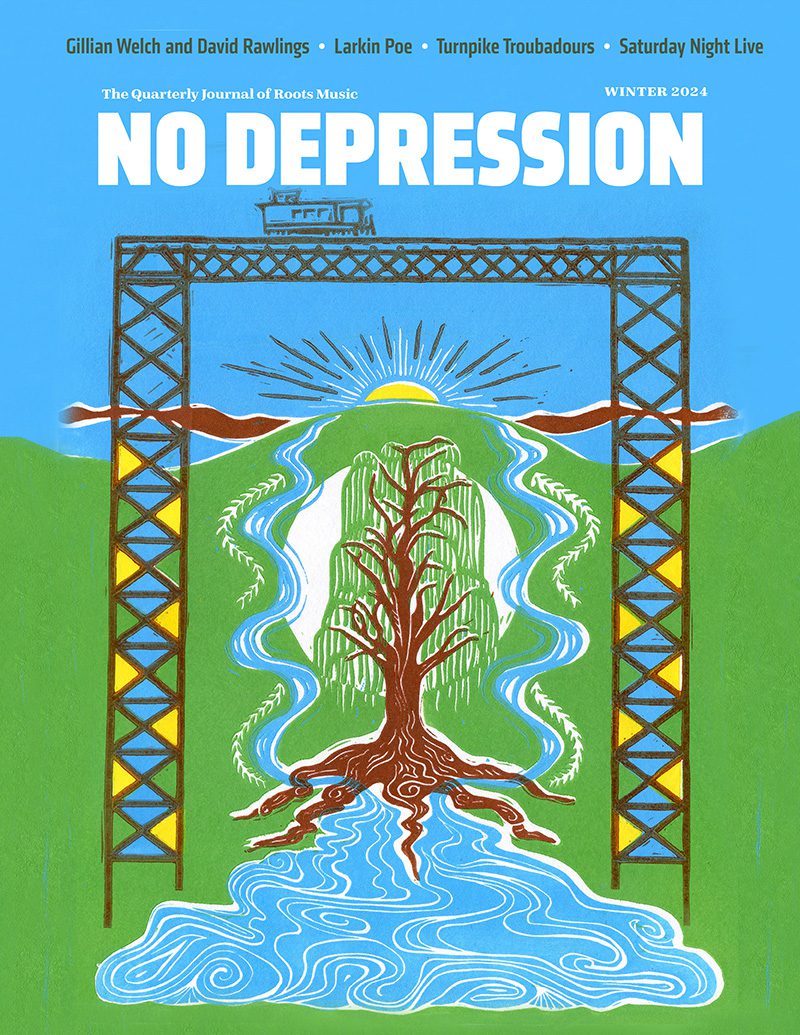CW Stoneking: Jungle Blues (An Interview)
CW Stoneking has been an acclaimed bluesman in Australia for two decades. Last summer, he booked his first national US tour in support of the incredible album Gon’ Boogaloo and was welcomed with open arms. When listening to CW’s music, you understand the deep respect he has for blues and jazz traditions, while also not being constrained by genre at all. Despite being a consummate blues singer, you don’t find many 12-bar blues arrangements in his repertoire, and he has said in the past that he is not interested at all in making “nostalgic music.” This is the music that comes out of him, and if it sounds like a throwback, that might be more on the listener than the performer. In a couple of weeks, CW will bring his brand of blues to the Harbor stage at Newport; we got a chance to chat with him about his work. If you’re heading to the Fort, check him out on Sunday!
RLR: Last summer was your first US tour, which was very well received. How was that experience, after having established such a strong following in Australia over the past twenty years or so?
CWS: It was good–I’d been doing little things here and there, but it was good to spend some real time getting around. I’ve picked up small pockets of fans here over the years through YouTube and the internet, and they’d listened to my records, so it was cool to meet people on the road.
RLR: How has owning your own record label shaped your career and sound?
CWS: With the recording, I’ve never borrowed money or something like that to make records. The first album, I scraped it together doing shows around town. And then after that, I was out playing larger shows. I’ve never needed it in that sense, which for a lot of people is where the value [of a label] comes in. It’s really in name only, because I’ve always got people working on things – distributors and publicists and things like that, and I’ve had good people to work with as well.
RLR: You recorded Gon’ Boogaloo with essentially one microphone. There’s been sort of a resurgence in older recording styles recently–how important is that kind of thing for you, capturing the music with its rough edges, etc.?
CWS: Right. I don’t really care about it. I just had a small, small window of time. It wasn’t really intentional. When we were just setting up on the first day and getting sounds and stuff, I just found the close mics weren’t really necessary. I didn’t like the sound any better. It was kind of accidental. I had an option to use a nice tape machine, which sounded better than the other machine he had in the place. So I had to make the call to do all the songs that way, if we’re going to do one or two. We encountered the complications of doing something like that and figured it out as we went. It saved me potentially weeks in mixing, I guess. There’s always good, some bad. Some of the arrangements don’t jump out like they should, and we lost small details. Overall, I was kind of tired of working on that record, and I just wanted it done and out, so I was quite eager to do whatever was going to be the easiest way to get it done, so it really just happened there and then.
CWS: Well, even before I have the words, I’m usually singing something, feeling where the melody and what the tonal quality is. I had a couple things with the singing in it, like “The Zombie” and stuff like that and I was just stumbling in the dark, really, just trying things and singing things that weren’t even words, just that choral response thing.
I’ve got a little snippet on a cassette tape where it’s just in the middle of a whole bunch of stuff of random things. But all the essential parts of [“Tomorrow Gon’ Be Too Late”] are there on that tape. I can’t even remember the order I wrote it in, but definitely early on, I was thinking that how I wanted to have the backing singing rather than the horns so much.
RLR: In American blues, there are many recurring references to “going up the country,” or “working on the farm,” for being in prison and I feel like the jungle might be a parallel in your music. How do you think about the jungle–both literal and figurative–as part of the influence on your music?
CWS: Well, I don’t really know. Like you say, it comes in all different sorts of ways. I started with that because on the record before that, I was sort of looking for a common thread a little bit. And that sort of imagery that’s in the back of everybody’s head somehow, I felt it was a strong sort of inner, subconscious, evocative sort of thing that unifies a bunch of sort of musical influences and I can just stew them.
RLR: At the end of the month, you’re playing Newport Folk Festival, which was so important in the rediscovery of Son House, Mississippi John Hurt, Skip James, and others, all of whom I assume were important to you. Is there something special for you, playing this festival, knowing that kind of history that is has?
CWS: It has a kind of prestigious thing to it. You’ve heard people talk about it for people talk about for years and years and I’ve seen clips of people like Bob Dylan playing it. So it’s pretty cool.



